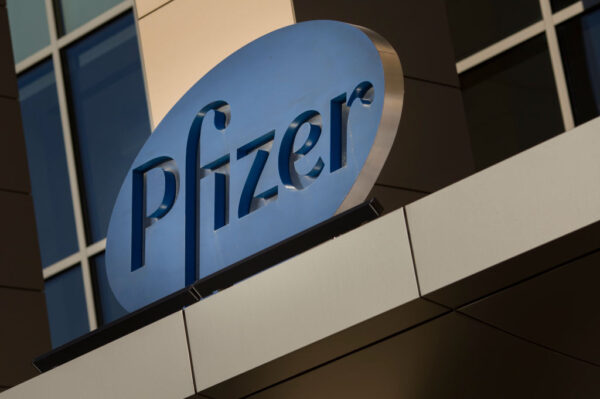
Biopharmaceutical company Pfizer is starting to serve consumers directly through its new telehealth platform called PfizerForAll, the company announced Tuesday. Pfizer declared that the platform is needed as consumers battle a confusing healthcare system.
PfizerForAll will support patients with conditions like migraines, Covid-19 or the flu. Through the platform, users can connect with independent healthcare professionals via telehealth or in person. They can also receive prescription medicines, over-the-counter treatments and diagnostic tests delivered to their home, or accessible at their local pharmacy.
In addition, adult consumers can use the platform to find availability for Covid-19, flu, RSV and pneumococcal vaccines and book an appointment. Consumers can use their existing insurance and pharmacy programs, and they can access customer support for help with their insurance. PfizerForAll was also launched in partnership with several healthcare organizations, including UpScriptHealth, Alto Pharmacy and Instacart, though the company declined to say the partners’ roles.
“We are launching PfizerForAll in response to an acute need in the U.S. healthcare landscape,” said James Allen, PfizerForAll lead, in an email. “Many parts of the U.S. healthcare system are fragmented and overwhelming. Many people find it complicated and confusing to navigate the fall and winter seasons or manage acute or chronic disease. … PfizerForAll can make managing everyday health quicker and more convenient. The end-to-end offering gives people an easier way to make same-day vaccination and care appointments, receive medications at home or for pick up at a preferred pharmacy and find potential savings on Pfizer medicines.”
According to one healthcare expert, Pfizer’s launch of PfizerForAll could be in response to several macro trends affecting the health economy in the U.S. For example, urgent care volume is no longer dependent on Covid-19, suggesting changes in consumers’ preferences for Covid-19 care, said Sanjula Jain, Ph.D., chief research officer and SVP of market strategy at healthcare analytics firm Trilliant Health.
“Our research also suggests that there are some consumer segments who prefer telehealth for specific clinical use cases, some of which overlap with Pfizer’s focus. Underlying both of these trends is also the fact that the current healthcare journey is very fragmented for patients which has disrupted the traditional patient-physician relationship which creates an opportunity for prescribing-focused new entrants to have a greater influence on the patient journey,” Jain said in an email.
Another healthcare executive noted that big pharma has traditionally spent billions of dollars on physician and patient education and awareness campaigns to boost drug sales. However, it can be difficult to measure the return on investment from these efforts.
“By launching direct to consumer platforms, not only can pharma do more good by facilitating improved access for patients to providers for treatment advice, they can more directly measure and optimize the experience that leads to real prescriptions and drug sales,” said Sean Mehra, co-founder and CEO of virtual primary care company HealthTap. “Pfizer’s move into the space further validates the inevitable momentum between pharma companies increasingly partnering directly or indirectly with telehealth providers.”
In creating PfizerForAll, the company seems to be taking a page out of Eli Lilly’s book, which launched a similar direct-to-consumer telehealth platform called LillyDirect in January. However, the two platforms mostly treat different conditions, with PfizerForAll focusing on respiratory illnesses and LillyDirect addressing obesity and diabetes. Both platforms support patients with migraines.
According to Jain, each company’s strategy lines up with its “overall drug pipeline’s clinical distribution.”
With drugmakers making this move into direct-to-consumer telehealth, one industry follower questioned whether consumers will actually be interested in receiving these services from Pfizer or Eli Lilly.
“The bigger question for me is … what’s the appetite for consumers to go here vs. an urgent care, primary care clinic, or better consumer-facing product like Hims, Ro, and others?” said Blake Madden, founder of industry newsletter Hospitalogy, in a Tuesday edition of the newsletter. “When you have a migraine for instance … are you going to think to launch PfizerForAll, or would you prefer to connect with your local PCP via telehealth? I’m taking the second option 100% of the time personally. So adoption numbers for these businesses will be interesting to watch.”
Time will only tell if these drugmakers will be successful in their telehealth endeavors. Allen of PfizerForAll noted that the company will track its success by measuring user engagement and feedback. Pfizer will continue to tweak the platform over the next several months and plans to expand it in the future, he added.
DOMINICK REUTER/AFP via Getty Images










